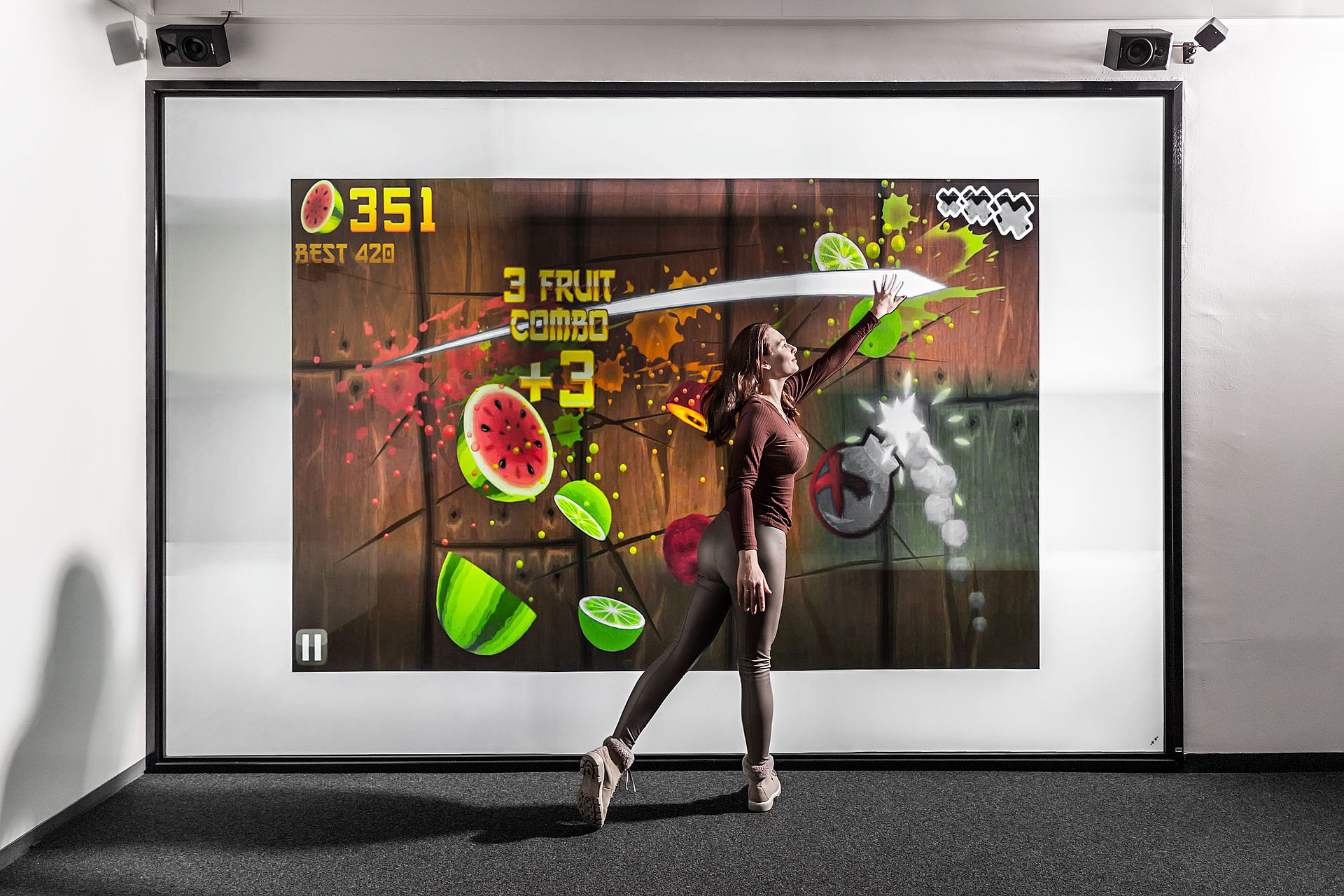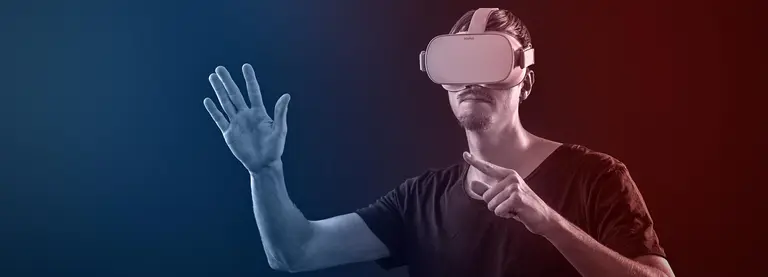Perfectly equipped
Our laboratories and classrooms are top notch. Because if you want to change something tomorrow, you shouldn't learn yesterday's lessons.

The programme prepares graduates to scientifically tackle open questions of Media Informatics. They acquire both methodological and research competences. Students can choose from a broad range of application-oriented, project-related teaching/learning formats in areas of specialisation like Interactive Systems, Video, Animation, Computer Vision or Ubiquitous Computing.
Master of Science (MSc)
120
4
This diagram is a simplified illustration. You can find detailed information on our current Study Curriculum
Our laboratories and classrooms are top notch. Because if you want to change something tomorrow, you shouldn't learn yesterday's lessons.
The master's program provides in-depth content, methodological, and personal skills. The aim is to enable students to work independently in a scientific manner, plan research processes, and develop solution strategies. The individually focused master's degree serves as preparation for a doctorate or specific career orientation. The degrees correspond to qualification level 7 of the German Qualifications Framework and level 2 of the Qualifications Framework for German Higher Education Degrees.
Our graduates have acquired in-depth and comprehensive knowledge of engineering, mathematics, computer science, and natural sciences. This enables them to conduct scientific work and act responsibly in their professional activities and in society. They have a critical awareness of the latest findings in their discipline.
Our graduates are able to
Our graduates have the skills to
Beyond their bachelor's degree qualifications, our graduates are able to
The general qualifications already acquired in the bachelor's program are expanded upon in the master's program.
The ratio of teachers to students in media informatics at the University of Ulm allows for excellent student support.
The exercise groups and tutorials are manageable in size, the formation of study groups is actively encouraged, and additional offerings such as programming workshops and the use of electronic learning platforms make it easier to get started in this diverse field of study, especially in the early semesters.
Research orientation and focus
In the master's program, the bachelor's program is followed by an in-depth focus. There is an extensive range of subjects to choose from. At the same time, students have the opportunity to participate in research projects themselves as part of project or master's theses.
The master's program is divided into a basic section in the first semester and an advanced section in the following semesters. The aim is to enable students to choose between a consistently in-depth education in a specialization subject of their choice and a broad education based on as many different areas of computer science as possible. Computer science at Ulm University is very broadly based and offers all important subfields of computer science for in-depth study. The assignment of modules to subjects is described in the module handbook.
The core area of media informatics comprises 30 credit points. At least 12 CP must be earned in media informatics and at least 6 CP in the areas of practical computer science, theoretical computer science, or technical computer science. Up to 6 CP of the core area can also be covered by courses from the supplementary area.

Connecting people and technology
Study in Ulm
Our Graduation Ceremony at Münsterplatz
A brief Introduction